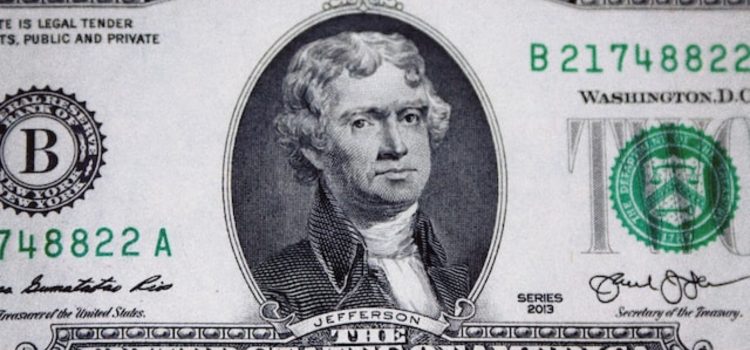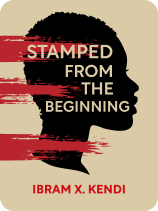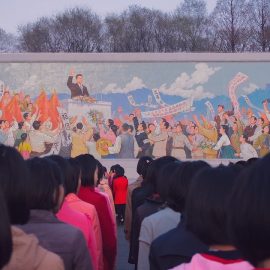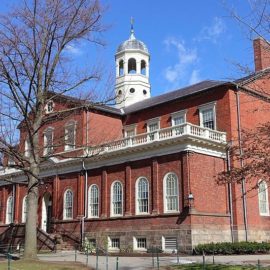

This article is an excerpt from the Shortform book guide to "Stamped from the Beginning" by Ibram X. Kendi. Shortform has the world's best summaries and analyses of books you should be reading.
Like this article? Sign up for a free trial here.
What was Thomas Jefferson’s stance on slavery? How did the institution of slavery oppose Jefferson’s political interests?
While claiming to cherish and respect people of all colors and ethnicities, Thomas Jefferson instituted policies that pointed to the opposite. Like many of his time, Jefferson found himself caught between his intellectual ideals (which opposed slavery and racism) and his economic and political self-interest.
Ibram X. Kendi, a historian of race and discriminatory policy in America, deconstructs Jefferson’s slavery and racism views.
Thomas Jefferson: Some Men Are Created Equal
According to Kendi, the Declaration of Independence reveals a contradiction in its author’s thinking. In the Declaration, the slave-holding Jefferson asserts that “all men are created equal”—resulting in an ambiguity that Kendi says reflects Jefferson’s larger ambivalence about race, as expressed in his often contradictory writings and actions. Kendi gives several examples highlighting Jefferson’s slavery stance:
- Jefferson blamed the British for preventing Americans from abolishing slavery but also blamed them for inciting slave revolts. In either case, Kendi points out, the critical issue isn’t slavery or racism—it’s unwanted British influence.
- Jefferson opposed letting former slaves be part of free White society, arguing that it would lead to violence because Black people rightly had grievances against their White enslavers (an arguably antiracist and certainly empathetic statement) and because Black people are morally inferior (an openly racist statement).
- Jefferson insisted that only White people were beautiful and denigrated Black people’s appearance, but he also fathered numerous children with an enslaved mistress. Kendi points out that this contradiction was common under slavery, and in fact led to accusations that Black women were aggressively promiscuous—a myth that persists to this day.
| What America’s Founders Thought About Slavery Like Jefferson, most of America’s founders enslaved people. But while Kendi suggests that Jefferson’s attitudes reflect a general ambivalence about slavery among the founders as a whole, that doesn’t appear to be the case. In fact, other historians suggest that many of the founders eventually opposed slavery and wished to see it abolished. For example, George Washington—whom Kendi critiques for his hesitation to publicly oppose slavery during the Revolutionary War—eventually came to regret enslaving others, and when he died, he freed the people he’d enslaved. Likewise, many of the colonies had started moving toward abolition by the Revolutionary period. In fact, many Northern states did indeed abolish slavery during or immediately after the war—though their economies remained tied to slave-based Southern agriculture. This conflict of interests led to a number of protections for slavery in the Constitution—most notoriously, the definition of a Black slave as three-fifths of a person for the purposes of Congressional representation. In short, Revolutionary-era attitudes about slavery are perhaps more nuanced than Kendi lets on. And yet, in framing the Constitution, the founders demonstrated Kendi’s fundamental claim on a grand scale: By prioritizing the new union and its economic success over their moral objections to slavery, the founders accepted a racist policy as a way to achieve what they saw as the interests of the new nation. |

———End of Preview———
Like what you just read? Read the rest of the world's best book summary and analysis of Ibram X. Kendi's "Stamped from the Beginning" at Shortform.
Here's what you'll find in our full Stamped from the Beginning summary:
- How enslavers convinced themselves that slavery benefited slaves
- Why most antiracist reformers harbored racist thoughts
- How to achieve an antiracist society






